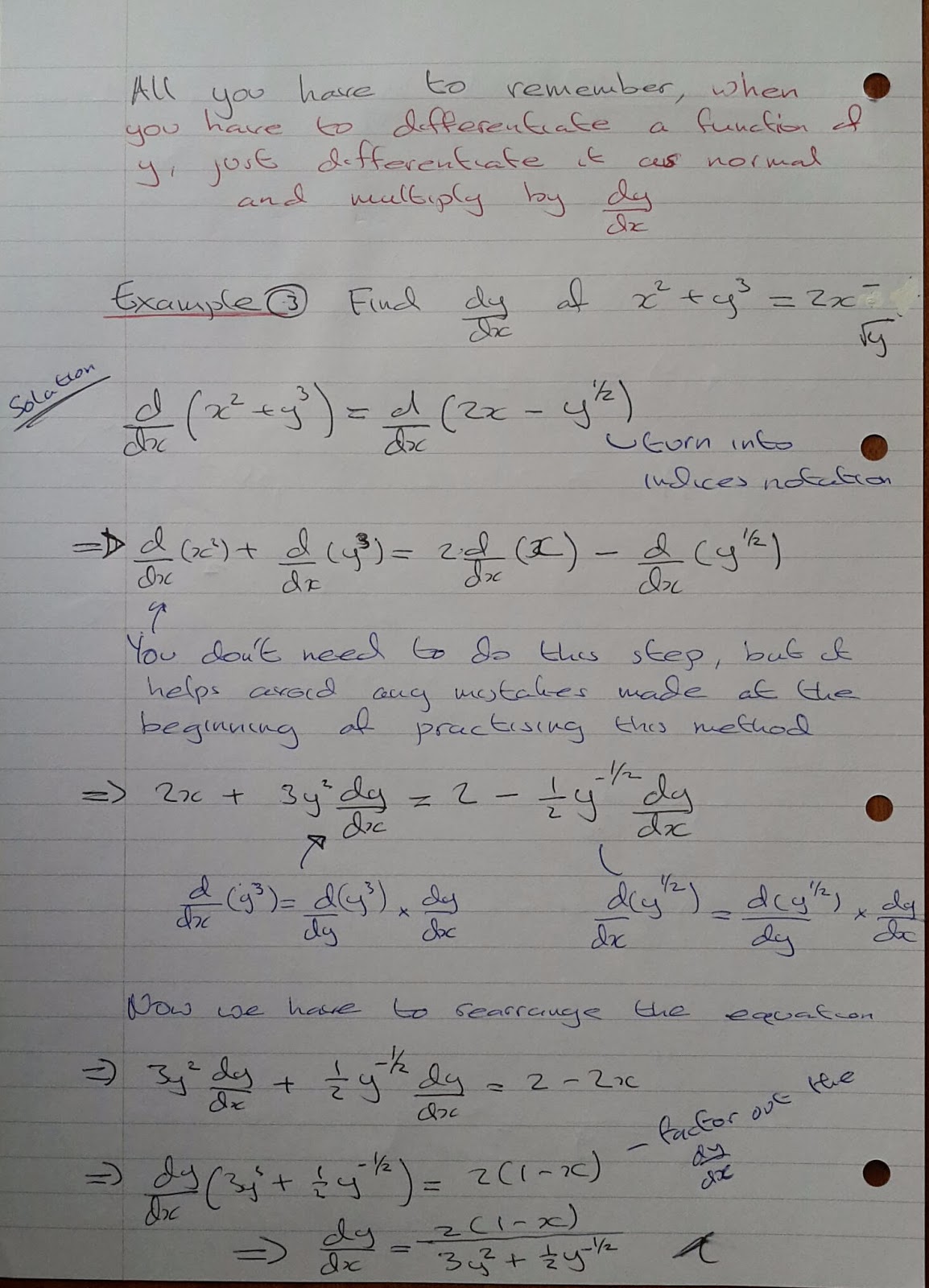
A2 Differentiation Implicit Differentiation Part 2 alevelmathematicsnotes
Implicit Differentiation is needed when a function is not explicitly written as (y = f (x)). It involves differentiating each term separately and then simplifying. This is often essential when dealing with curves and shapes defined by implicit functions. Everything you need to know about Implicit Differentiation for the A Level Mathematics AQA.

Implicit Differentiation Edexcel Core Maths C4 June 2012 Q5(a) ExamSolutions Maths Revision
An A Level Maths Revision tutorial on finding the differential using implicit differentiation of a function that is defined implicitly. https://ALevelMathsRevision.com

A2 Differentiation Implicit Differentiation Part 3 alevelmathematicsnotes
Past paper questions for the Implicit Differentiation topic of A-Level Edexcel Maths.

Implicit Differentiation ALevel Maths Exam Question Walkthrough Tutorial AQA/Edexcel Exam
Watch Solution Did this page help you? FREE Maths revision notes on the topic: Differentiation. Designed by expert SAVE MY EXAMS teachers for the AQA A Level Maths: Pure exam.
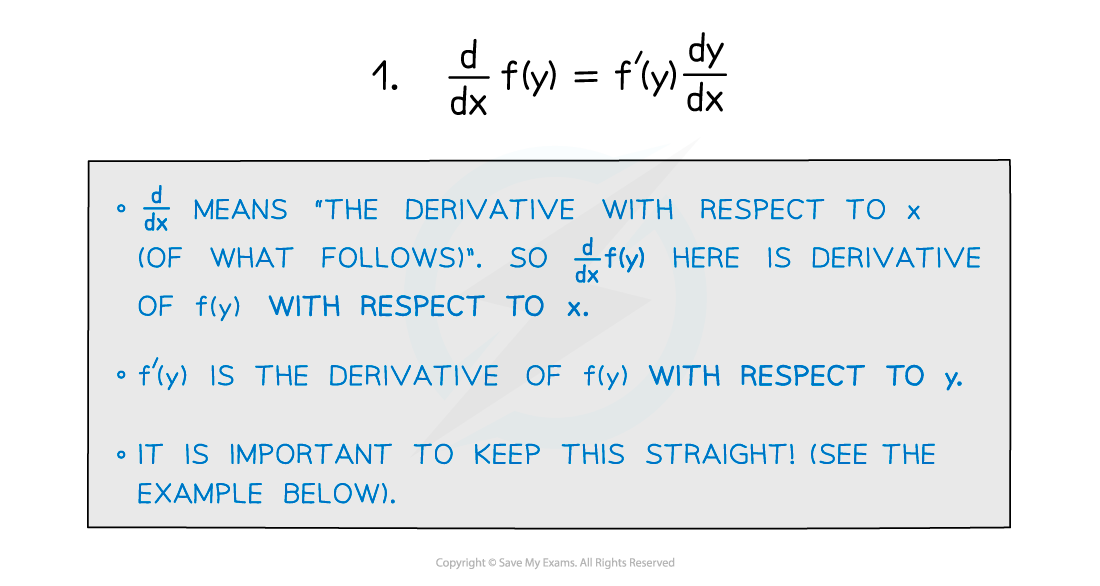
CIE A Level Maths Pure 3复习笔记4.2.1 Implicit Differentiation 翰林国际教育
Implicit Differentiation. If y 3 = x, how would you differentiate this with respect to x? There are three ways: Method 1. Rewrite it as y = x (1/3) and differentiate as normal (in harder cases, this is not possible!) Method 2. Find dx/dy: dx = 3y 2. dy.

Differentiation Implicit Kappa Maths Resources for A Levels & GCSE Maths
University of Leeds - MSc Mathematics. January mocks on the horizon? Kick-start your revision with our 2-day online Mock Preparation courses. Statistics 3rd, 4th, 5th, Pure 2-3rd, 5-6th and Mechanics 3rd, 4th, 5th January. Book your place now! This topic is included in all papers for AS-level and A-level OCR (MEI) Maths.

Implicit Differentiation Simple Examples Part 1 Differential Calculus YouTube
What is implicit differentiation? An equation connecting x and y is not always easy to write explicitly in the form y= f (x) or x = f (y) However you can still differentiate such an equation implicitly using the chain rule: Combining this with the product rule gives us: These two special cases are especially useful:

Calculus Implicit Differentiation YouTube
An implicit equation is an equation which is not in the form , it consists of two variable x and y which cannot be separated. Implicit Functions are differentiated by using "chain rule" in combination with the "product and quotient rule". When we differentiate y we write with the derivative i.e
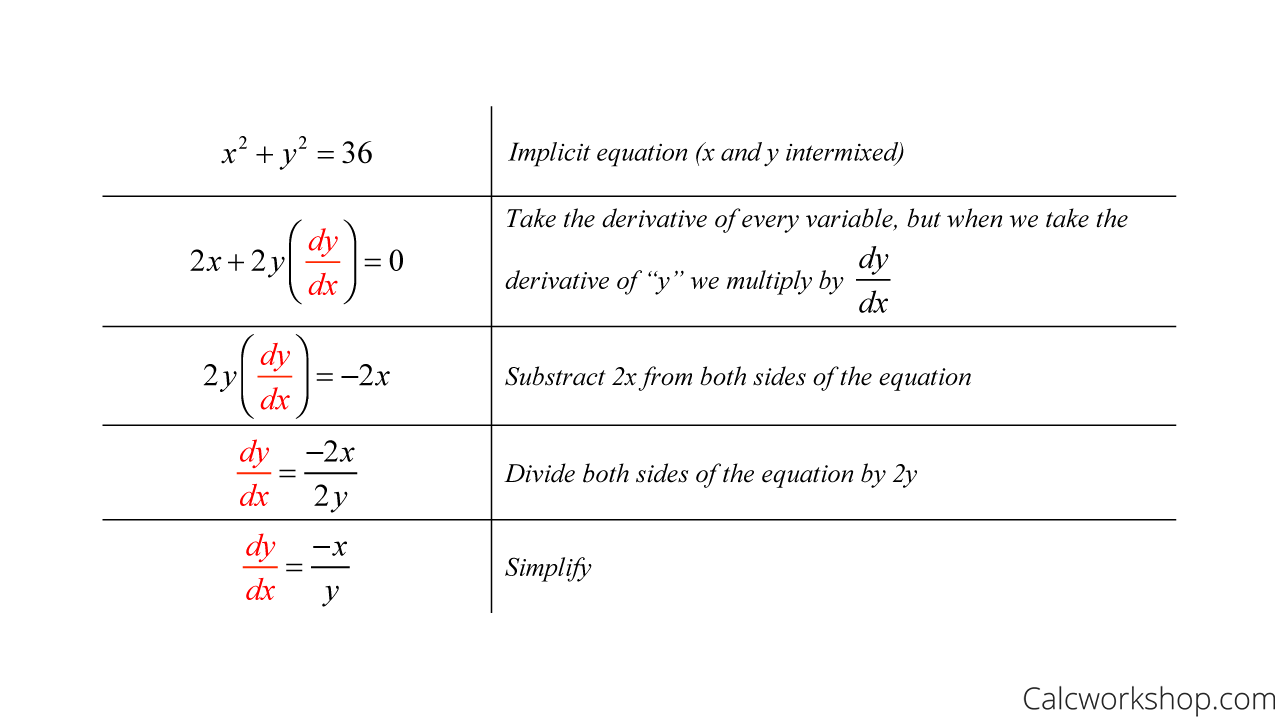
Implicit Differentiation (w/ Examples And Worksheets!)
Some relationships cannot be represented by an explicit function. For example, x²+y²=1. Implicit differentiation helps us find dy/dx even for relationships like that. This is done using the chain rule, and viewing y as an implicit function of x. For example, according to the chain rule, the derivative of y² would be 2y⋅ (dy/dx).

Implicit differentiation, product rule, Integration, additional maths maths, A Level maths YouTube
Implicit Differentiation Maths Genie 113K subscribers Subscribe 37K views 5 years ago A Level Pure Maths revision tutorial video. For the full list of videos and more revision resources.

Implicit Differentiation Edexcel A level Maths Exam Questions Teaching Resources
Pure Maths Revision - Implicit Differentiation. Maths revision video and notes on the topic of implicit differentiation.
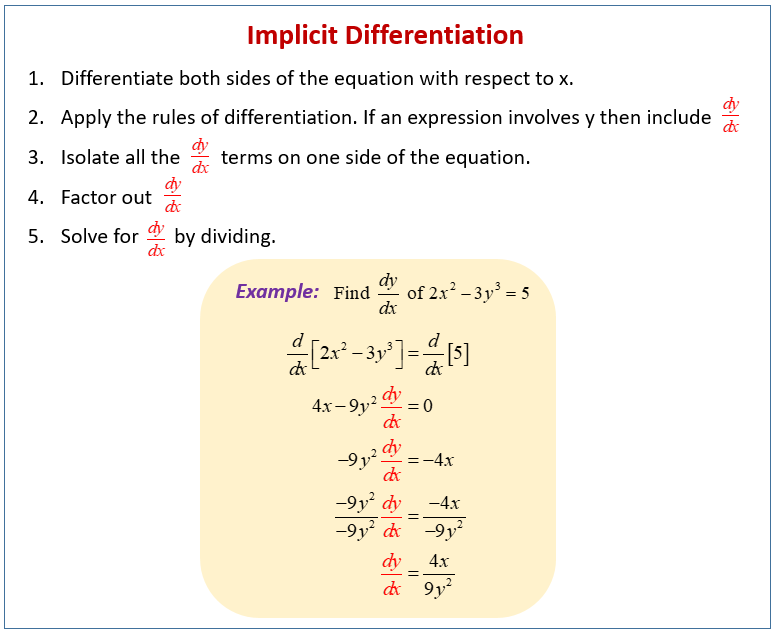
Examples using Implicit Differentiation (solutions, formulas, videos)
Step 1: Differentiate terms that are in x x only. Step 2: Use the chain rule to differentiate terms in y y only. \dfrac {d} {dx} (f (y))=\dfrac {d} {dy} (f (y))\dfrac {dy} {dx} dxd (f (y)) = dy d (f (y))dxdy This is the same as differentiating f (y) f (y) normally then multiplying by \dfrac {dy} {dx} dxdy.

Implicit Differentiation Worked Questions ALevel Maths YouTube
What is implicit differentiation? An equation connecting x and y is not always easy to write explicitly in the form y= f (x) or x = f (y) However you can still differentiate such an equation implicitly using the chain rule: Combining this with the product rule gives us: These two special cases are especially useful:

A Level Maths Notes A2 Differentiation Implicit Differentiation Part 3
Calculus Implicit Differentiation This section covers Implicit Differentiation. If y 3 = x, how would you differentiate this with respect to x? There are three ways: Method 1 Rewrite it as y = x (1/3) and differentiate as normal (in harder cases, this is not possible!) Method 2 Find dx/dy: dx = 3y 2 dy So we get: dy = 1 dx 3y 2 Method 3
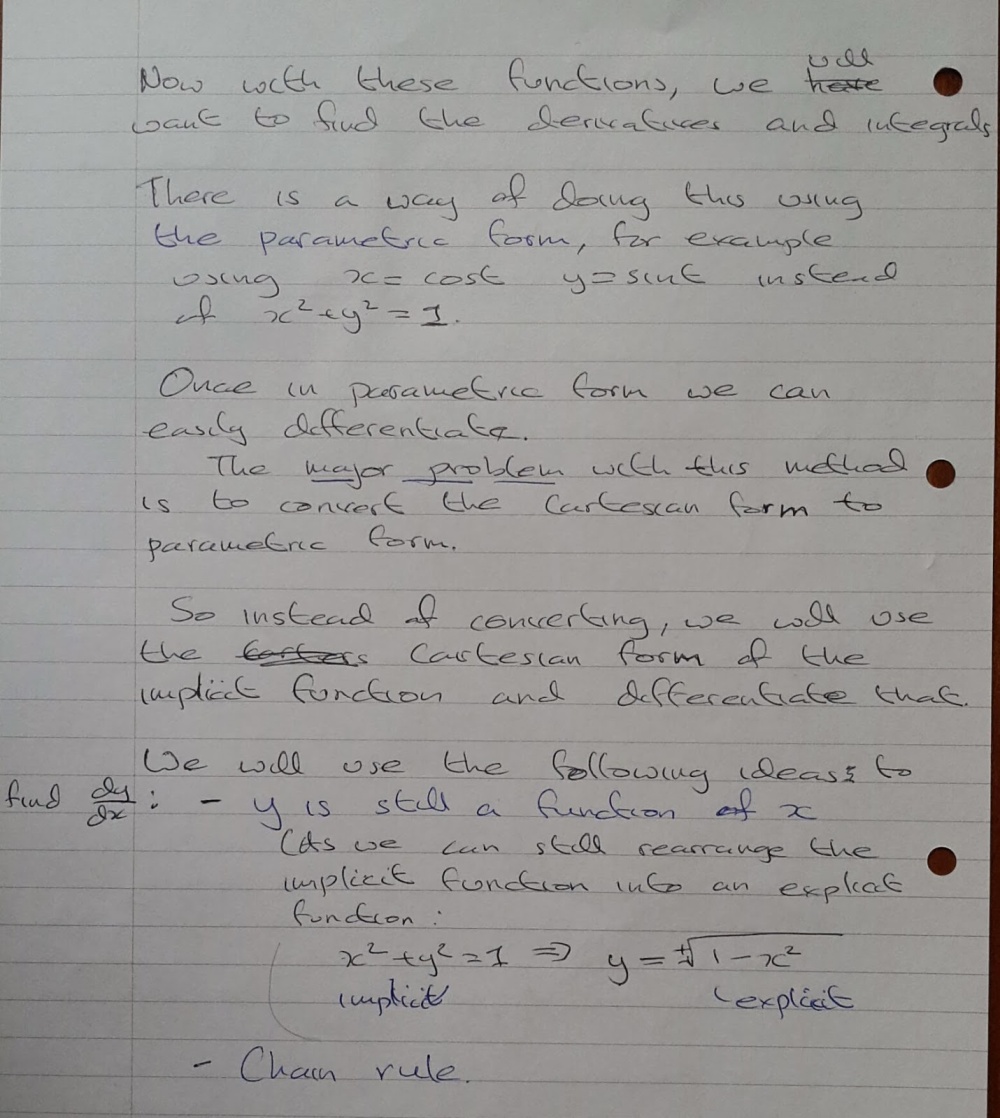
A2 Differentiation Implicit Differentiation Part 1 alevelmathematicsnotes
A curve has implicit equation x y y y x xy3 3 2+ + + − = +3 3 6 50 2 . Find an equation of the normal to the curve at the point P(4,2). x y= 2 Question 6 A curve is described by the implicit relationship 4 3 21x xy y2 2+ − = . Find an equation of the tangent to the curve at the point (2,1). 4 19 42y x+ =

A2 Differentiation Implicit Differentiation Part 1 alevelmathematicsnotes
AS and A level Mathematics Practice Paper - Implicit differentiation - Mark scheme 7 Source paper Question number New spec references Question description New AOs 1 C4 June 2014 1 7.5, 7.3 Implicit differentiation 1.1b 2 C4 Jan 2012 1 7.3, 7.5 Implicit differentiation 1.1b 3 C4 2015 2 7.5, Implicit differentiation 1.1b,3.1a